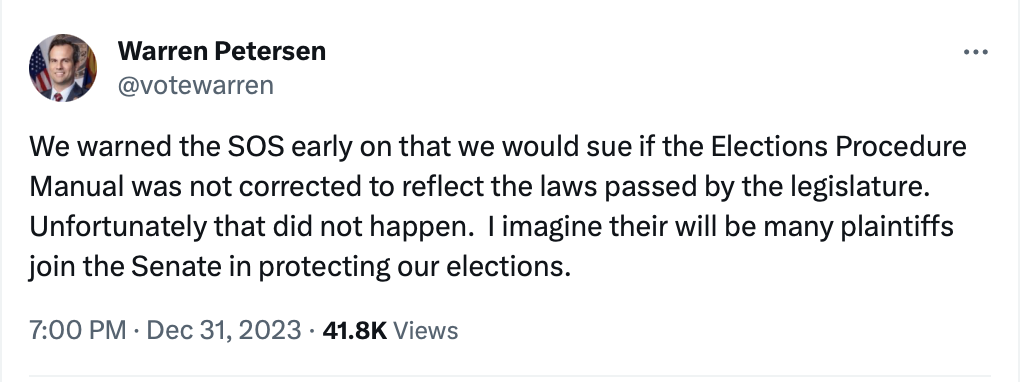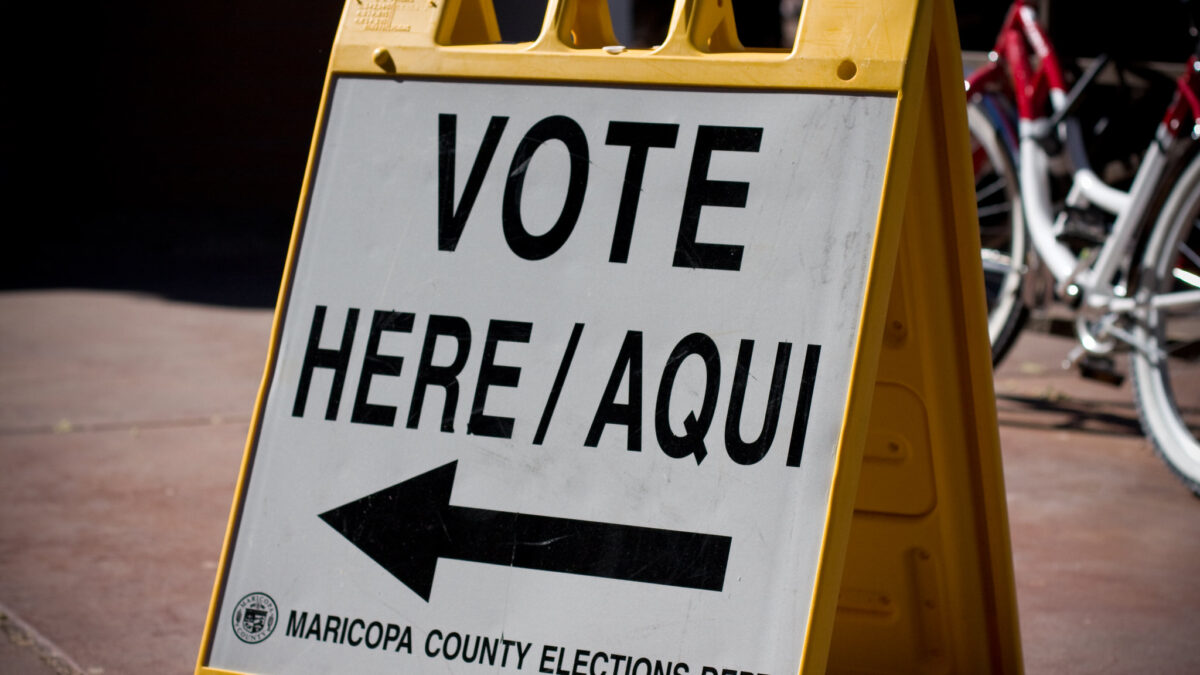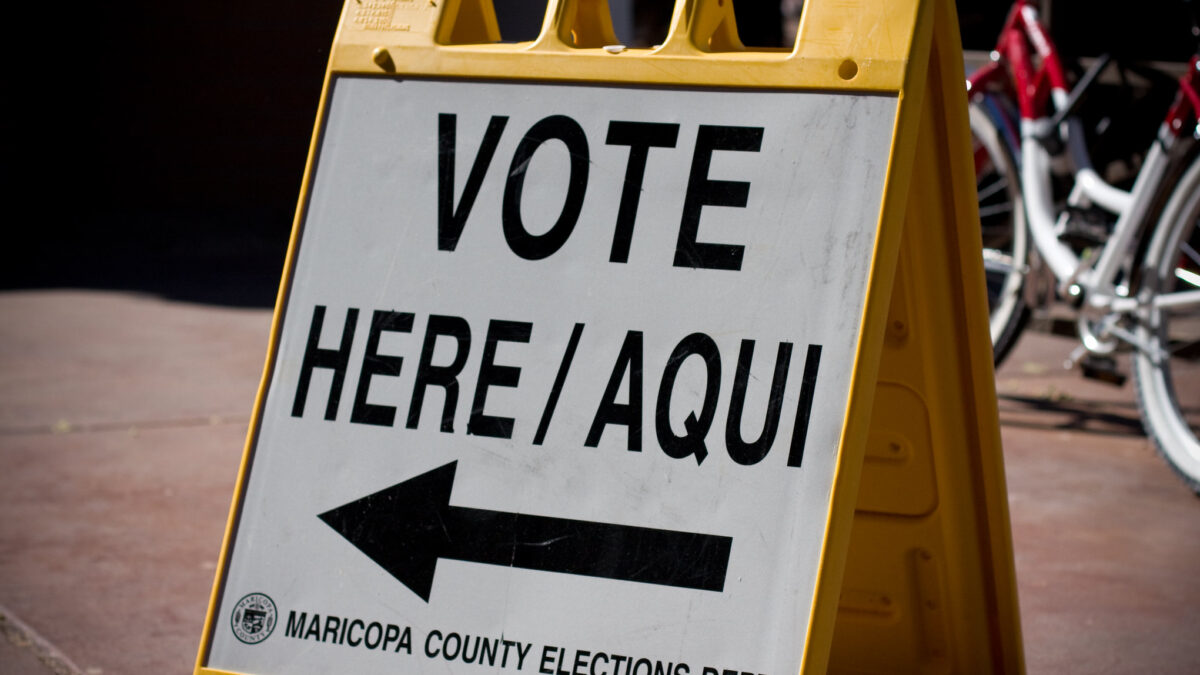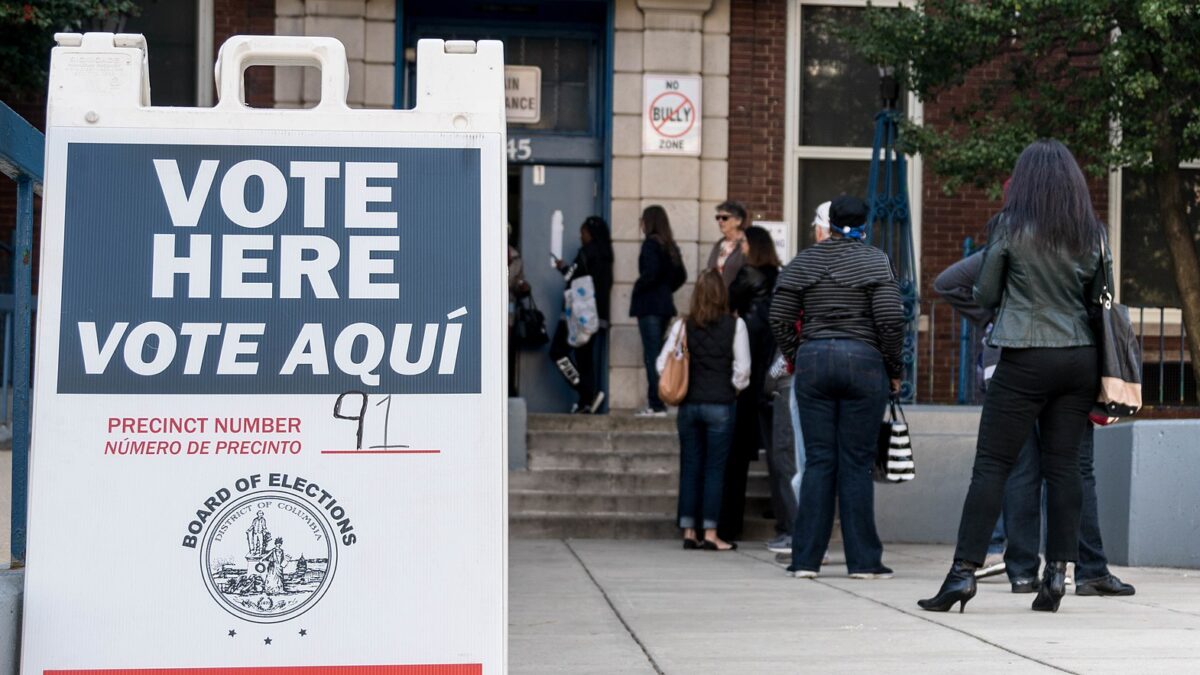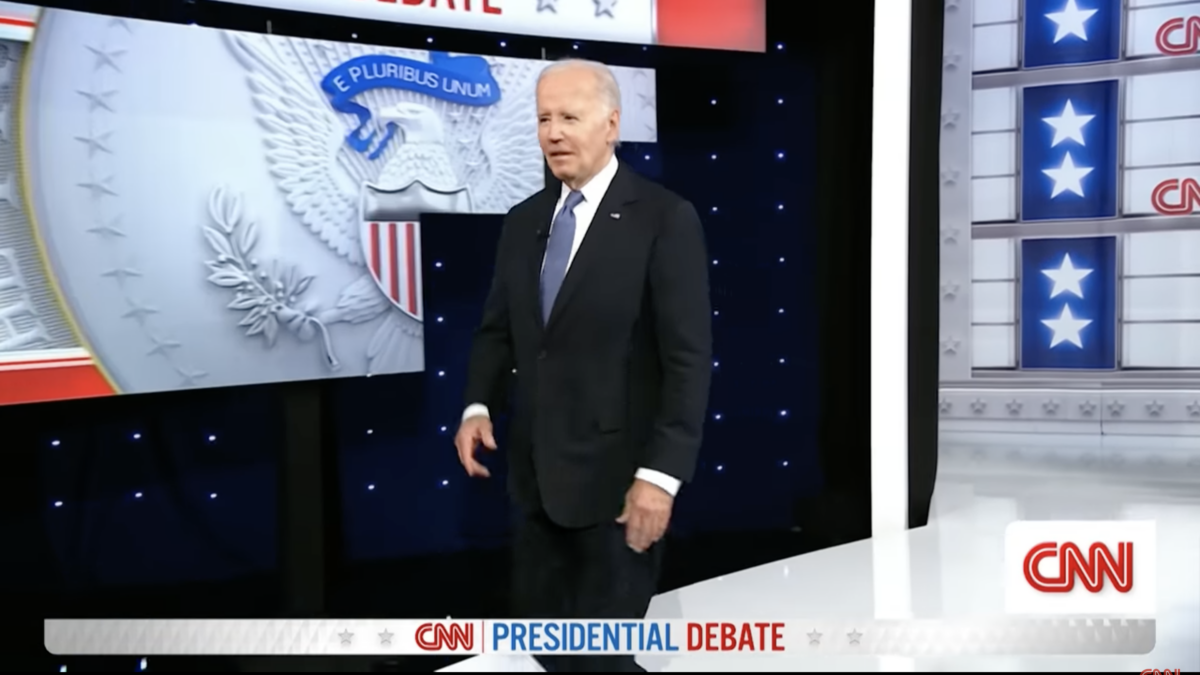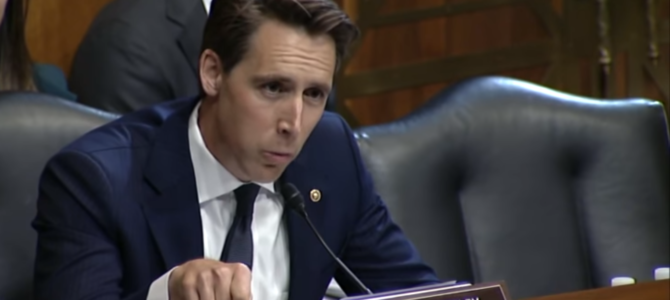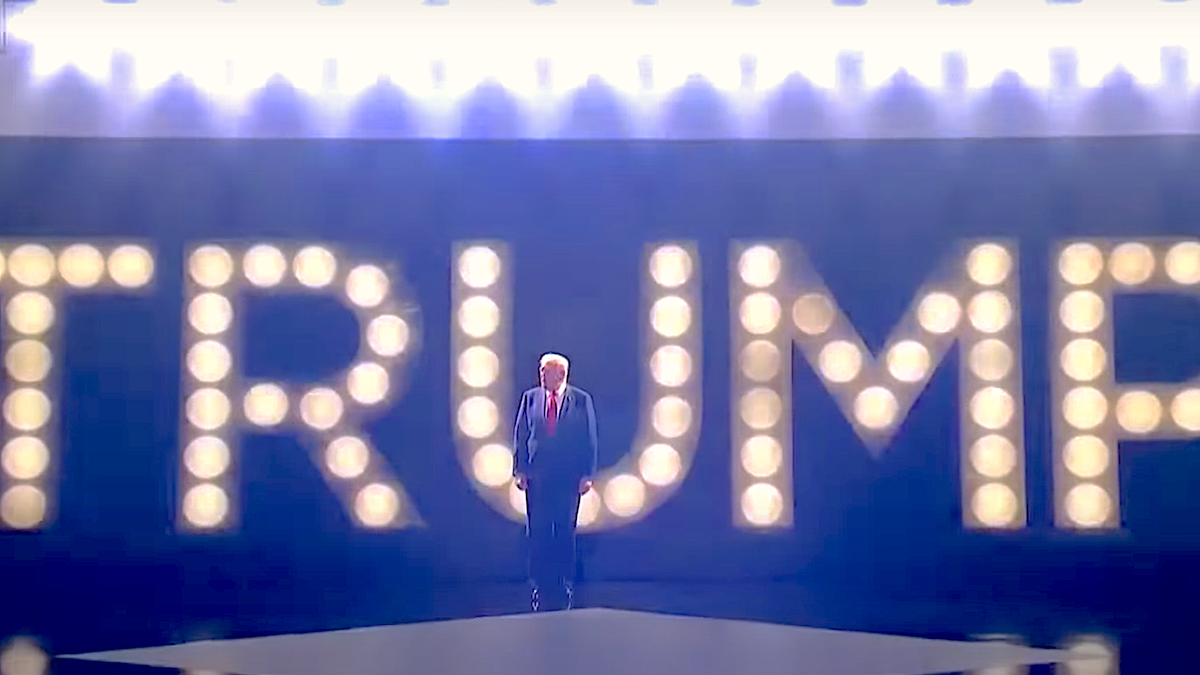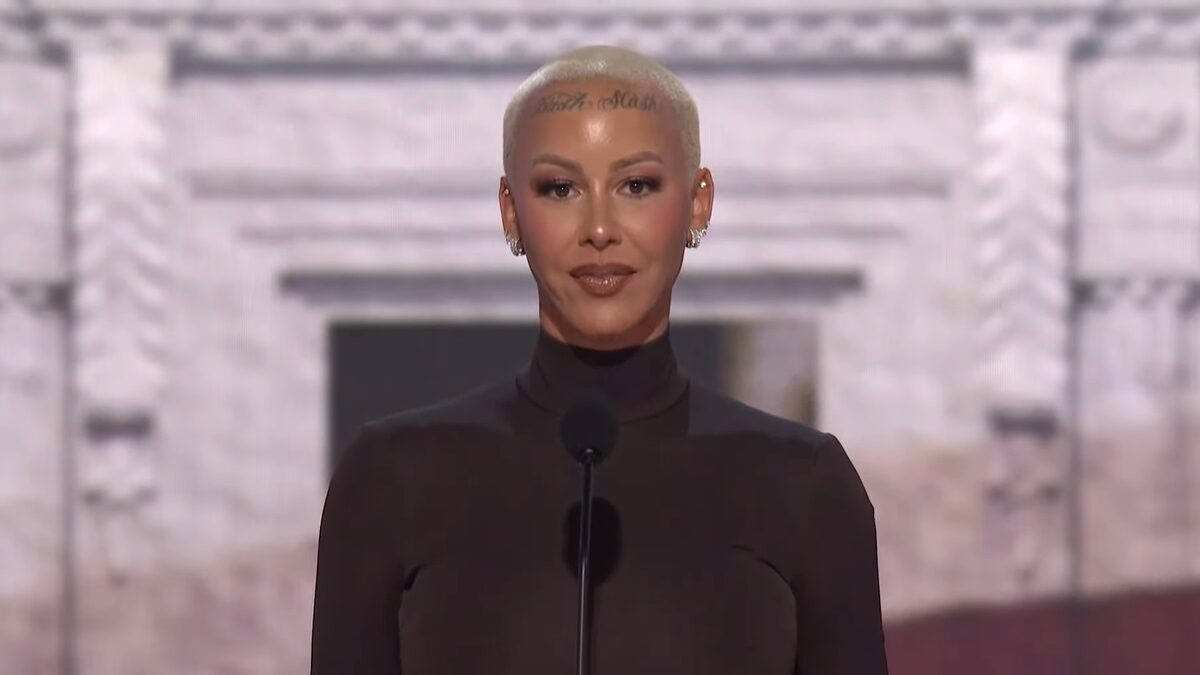After Arizona officials signed a consent decree agreeing to let voters who failed to provide proof of U.S. citizenship on their state voter application forms vote in federal elections anyway, Arizona saw an “explosion” of voters casting federal-only ballots. The soaring numbers coincide with millions of illegal immigrants flooding into the United States.
Lawsuit, Consent Decree Cripple Arizona Election Integrity Laws
Twenty years ago, Arizona voters approved Proposition 200, also known as the “Arizona Taxpayer and Citizen Protection Act.” At its core, the election integrity initiative required proof of U.S. citizenship to vote and photo identification at polling places. Prop 200 has come under constant assault from leftists fighting against the Arizona Constitution’s key qualification to vote in elections: U.S. citizenship.
The challenge went all the way to U.S. Supreme Court, where in 2013 the justices ruled 7-2 that states could not add documentary proof of citizenship requirements to federal election registration forms. States must “accept and use” the standardized federal voter registration form for national elections under the 1993 National Voter Registration Act (NVRA). The NVRA form, developed by the federal Election Assistance Commission, does not require proof of citizenship. It only asks that an applicant “aver, under penalty of perjury, that he is a citizen.”
[READ NEXT: Elon Musk Rightly Says Arizona Doesn’t Verify Federal Voter Citizenship — But The Feds Don’t Let Them]
But the opinion, authored by the late Justice Antonin Scalia, opened the door for states to vet voters. Scalia wrote that states “retain the flexibility to design and use their own registration forms.”
In response, Arizona accepted federal voter registration applications without citizenship documentation, but continued to require proof of citizenship on state forms. Federal registrants were designated as “Federal Only Voters,” eligible to vote for president and congressional contestants but not for state and local candidates.
But in 2018, in an affront to the will of the 56 percent of Arizona voters who supported Prop 200, the Grand Canyon State was forced to not only accept federal-only applications lacking proof of citizenship but also grant a federal-only registration to applicants who used a state form but couldn’t provide proof of citizenship. Arizona’s then-Secretary of State Michele Reagan, a Republican, and Democrat Maricopa County Recorder Adrian Fontes, an anti-election integrity warrior who went on to become Arizona’s secretary of state, signed a consent decree with the leftist League of United Latin American Citizens (LULAC) following more lawfare.
“That lawsuit was filed in 2017 challenging our ability to verify proof of citizenship even though we had a bifurcated (voter registration) system,” said Scot Mussi, president of the Arizona Free Enterprise Club, a nonprofit committed to advancing a pro-growth, limited government agenda in the Grand Canyon State. Mussi and his organization have been at the forefront of several election integrity battles.
According to Mussi, the pause in the proof of citizenship provision saw an “explosion of federal only voters” — voters who used the federal honor system instead of showing actual proof of citizenship.
According to the secretary of state’s office, about 1,700 people in Arizona voted in the 2018 midterm elections with a federal-only ballot. Two years later, in the absence of the documentation safeguard, the number grew to 11,600 individuals, according to AZ Free News. President Joe Biden claimed victory in Arizona by just 10,457 votes, or about 0.3 percent.
Lawmakers Fight Back
In 2022, the Republican-led legislature passed two election integrity bills aimed at ensuring citizenship at the polls. As the Arizona Free Enterprise Club summarized, House Bill 2492 requires county recorders to reject any application for state voter registration that does not include documentary proof of citizenship. The bill also requires proof of citizenship to vote in presidential elections.
Election officials who accept forms without documentation can be charged with a class 5 felony, which comes with a maximum two and a half-year prison sentence.
The bill also requires election officials to “check a multitude of databases to determine the citizenship status of an applicant using the federal form who did not include” proof of citizenship, Mussi’s organization notes. If the election official finds proof in the databases, no problem. If not, the election official is required to inform the Arizona attorney general and the county prosecutor about the suspected crime. If an applicant cannot be found in any of the databases, the election office must notify him requesting proof of citizenship within 30 days.
House Bill 2243 demands tighter maintenance of Arizona’s voter rolls and gives county recorders authority to cancel voter registrations when applicants fail to provide satisfactory evidence of U.S. citizenship within the specified time.
As I reported last week, Fontes and his leftist predecessor, now-Gov. Katie Hobbs, have failed to do critical voter list maintenance. More than a dozen Arizona counties appear to be in violation of Section 8 of the (NVRA), which mandates states keep accurate and current voter rolls for elections for federal office.
AZ Free News reported last year that in two quarterly reports issued to the state legislature, the secretary of state’s office noted that it had received reports of more than 78,200 potentially invalid voters. The numbers included more than 1,300 individuals “who admitted to not being a citizen on a jury questionnaire”; and north of 23,600 people “who admitted to not being a resident of a county on a jury questionnaire.”
The bills were signed into law in 2022 by then-Gov. Doug Ducey. The Republican told then-Secretary of State Hobbs — a Democrat and as partisan in the secretary’s office as she has proved to be leading the executive branch — that the laws offer a balanced approach that honors Arizona’s history “of making voting accessible without sacrificing security in our elections.”
“Election integrity means counting every lawful vote and prohibiting any attempt to illegally cast a vote,” Ducey wrote in a letter to Hobbs.
The left attacked, almost immediately.
Laws ‘in Limbo’
Several challenges making the usual hysterical claims of “voter suppression” were filed by roughly 20 far-left plaintiffs, including the Arizona Students’ Association, Mi Familia Vota, Living United for Change in Arizona (LUCHA), and the Arizona Asian American Native Hawaiian and Pacific Islander for Equity Coalition. The Democratic National Committee also has jumped into the fray.
In September, Arizona U.S. District Court Judge Susan Bolton, a Clinton nominee, struck down key portions of the laws in what Mussi described as a “weird judicial process.”
“Right now, they’re in limbo,” said the Arizona Free Enterprise Club president. “Judge Bolton, who is overseeing the case, issued a partial ruling, a very poorly written ruling, that deemed elements of the law are unlawful.”
Part of the judge’s decision asserts the consent decree of a few years ago cannot be undone by lawmakers. Only the judge who presided over the agreement can change its terms.
“It is in perpetuity until the judge dies or repeals it, according to Judge Bolton,” Mussi said.
Legal observers say the case, which has already involved the U.S. Court of Appeals for the 9th Circuit and the U.S. Supreme Court on ancillary matters, is destined for appeal.
A further hearing in Bolton’s court is slated for later this month.
Mussi sounds confident that the consolidated case will eventually be decided by the U.S. Supreme Court and that the election integrity laws will stand.
“We believe that the laws are lawful, that they comply with not only the National Voter Registration Act but it is a clear power that the state can implement laws ensuring that noncitizens are not voting in our elections,” he said.
Meanwhile, Fontes, Arizona’s secretary of state, released an updated election manual in late December. The manual, created by Democrats for Democrats, thumbs its nose at the election integrity laws, allowing, among other things, voter registration applicants failing to provide proof of U.S. citizenship to vote in federal races.
The Arizona GOP called it a “power grab” and a “breathtaking overstep” that is “trying to take powers from the state legislature that are not his to take.” Litigation is expected.
“We warned the SOS early on that we would sue if the Elections Procedure Manual was not corrected to reflect the laws passed by the legislature. Unfortunately that did not happen. I imagine there will be many plaintiffs joining the Senate in protecting our elections,” Arizona Senate President Warren Petersen wrote on his X account on New Year’s Eve.
